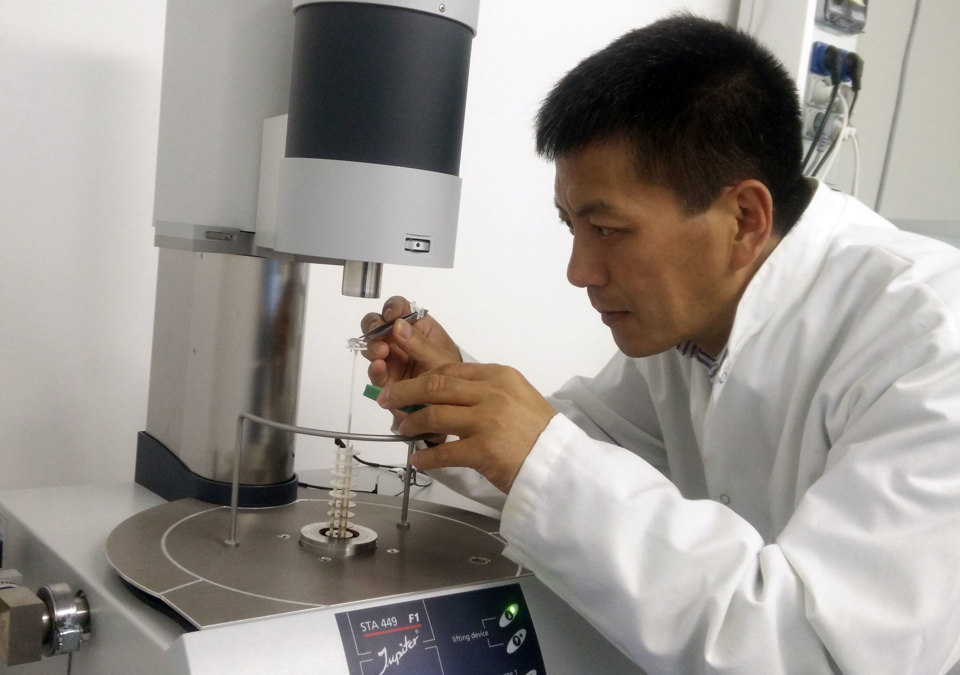The researchers are now working to gain a deeper understanding of the new type of glass, including its properties under different conditions, how it reacts to different impacts, and how it can be used in different applications. A recent breakthrough in revealing the nature of MOF glass was published in the most influential magazine, Science, in 2020. “Our experiments so far show that one potential use is in photonic devices and lasers, as it has luminescent behaviour. In the future, we may see it used in energy-saving, light-emitting devices in our homes – for instance different types of lamps that change colour. Other interesting application areas can be gas separation, gas storage and lithium ion batteries, since MOF glasses have a controllable porous structure,”
Yuanzheng Yue explains and adds: “We are standing at the beginning of an entirely new research field. We have so much to discover in terms of the nature of the glass, its structure, its functions and its potential applications, and a lot of that work will be done here in Aalborg. We already have several very talented young researchers working in this new field.”
Advising on future european research programmes
To recognize his outstanding contribution to science and technology, in 2020 Yuanzheng Yue was elected Fellow of the Royal Society of Chemistry, and in 2019 he was elected Fellow of the European Academy of Sciences, whose function is to strengthen research collaboration across Europe. “It is a great honour to be a fellow of these acclaimed academic institutions and get to impact the future European research strategy within the division of materials science. I believe we as researchers have a duty to contribute actively with our knowledge to our society, and through this election I can make suggestions as to what should be focused on to solve our current and future global challenges,” Yuanzheng Yue says.
“Of course, it also benefits AAU, as it underlines the quality of the research we conduct here and strengthens our collaboration with other international research groups. We have recently set up an exchange programme with a Japanese research group from Kyoto University, and my PhD student Rasmus Skov Klitgaard Madsen will be the first visiting researcher conducting MOF glass research there, sponsored by the Elite Research Travel Grant from the Danish Ministry of Higher Education and Science. The more international collaboration we can establish, the better – and as a side benefit, this also attracts more skilled students, which strengthens the field, and our research group, even more in the future,” he finishes.
